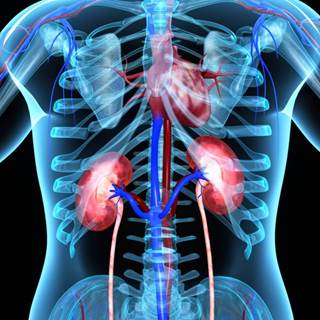|

- refused treatment in the United Kingdom
A former lecturer in the Department of English in Redeemer’s University where she was also the Head of Department (HOD) of the Theatre and Film Studies Department is in critical condition as you read this.
Worried by her deteriorating health condition, her siblings in the UK had invited her for a family vacation in the UK in the hope that spending time with family and friends abroad would help to refresh her.
But Awoyemi had collapsed on arrival in the UK, and her shocked relations made her undergo medical investigation.
On Friday the 13th of March 2015 at the London Royal Hospital, doctors told that her she had very high creatinine in her system and that ‘her kidneys have all gone.’
They recommended intervention of immediate dialysis as their findings revealed that Awoyemi has less than two (2) weeks to live if not on immediate dialysis. Furthermore, to live a normal life, she would need a kidney transplant.
She was immediately advised by the nephrologist to travel back to Nigeria to begin renal treatment and dialysis. Her inability to accommodate this devastating news caused her to almost go into depression but she rather sought solace in her Creator.
Refused treatment in the UK
Awoyemi went through difficult times as she was refused medical treatment in the United Kingdom because, unlike the rest of her siblings, she was not a registered British Citizen and so not entitled to the NHS care which she could use to start treatment.
In the midst of the preparation for her emergency travel back to Nigeria for treatment, she had two (2) life threatening experiences as she was almost lost to the cold hands of death.
Thank God a little cousin who was just five years old noticed her aunty was taking too long in the toilet than usual and then went to check on her; all she could hear faintly was, “call your dad, call your dad.”
By the time her brother got to her, she had collapsed, found in a pool of her own blood and was unconscious in the bathroom. She was saved Thanks be to God she was revived by medics on duty at Queens Hospital, Romford, Essex, that night.
During these emergency crises, it was discovered that she had a hemoglobin level of 3.5% as they battled to save her life. Even the medical team where amazed at how she was able to survive with that level of blood.
They confirmed that if she had boarded a flight, she wouldn’t have made it to Nigeria alive as she was scheduled to the following day.
Now her siblings and the medical team were at cross-roads; she was certified unfit to travel and yet she needed treated in the UK, but wouldn’t be treated because Nigeria and the United Kingdom has no bi-lateral relationship.
In the course to save her life for the trip back to Nigeria, a considerate doctor had to delay her trip to go against administrative rules and put his profession on line to reduce her creatinine level that was 1338 to be fit to travel.
With God on her side, she made it back to Nigeria and was immediately admitted to a Specialist Hospital (Molly Specialist Hospital) in Ibadan before she was transferred to the University College Hospital (UCH) Ibadan.
Needs 81,000 Pounds to live
The Royal Free London had estimated Awoyemi’s dialysis in a month to be £6,500 at £500 per session of three (3) times in a week plus routine test. She would be on a bill of £6,500 every month till she gets a transplant. The transplant package at Royal Free London is £68,000 which we cannot afford. Friends and well-wishers advised reaching out to hospitals in India that can perform the kidney transplant at a lower cost.
So far, the Federal University of Technology Akure (FUTA) Community, her old students and her few remaining friends have been wonderful. But we need more help from the public and every well-meaning Nigerian to help save the life of Dr. Comfort Taye Arayela (Nee Awoyemi).
She has been on dialysis which does not come cheap and we are running out of funds. She needs an urgent kidney transplant within two weeks because dialysis is just a temporary means of survival and that is why the family is turning to the Nigerian public, institutions/corporate organisations, NGOs and individuals for financial help.
Dr. Comfort Taye Arayela, a single mother, is a trained linguist, an actress, a director and a senior lecturer who has lectured in some few Nigerian universities and colleges of education including the Federal University of Technology (FUTA), Akure and Redeemer’s University (RUN) in Nigeria. Her profession has brought her to teach many actors and actresses among whom are some Nollywood and Christian Drama Ministers. She has also crossed path with many theatre and film professors and lecturers as colleagues.
She is jnot a lazy person, neither is her family, but “we have sold all that we can call our own to save her life,” the family said.
“We are therefore appealing to the general public and anybody who has been part of her life directly (student, classmate, mentee, Sunday school pupil, drama/theatre crew, colleague, friend, family, etc.) or indirectly presently or in the past, to come to my aid.”
Please save her by donating through gofundme with this link http://www.gofundme.com/kidneyforcomfort or through her account:
Account Name: Comfort Taye Awoyemi, Bank: Access Bank, Account Number: 0031551081, Sort Code: 044150149
Account Name: Comfort Taye Arayela, Bank: First Bank, Account Number: 2027494488, Sort Code: 011151003.
Comments
comments
|
 Log in to explore the world's most comprehensive database of dialysis centres for free!
Log in to explore the world's most comprehensive database of dialysis centres for free!  Professional dialysis recruitment
Professional dialysis recruitment


